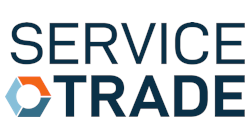Latest from Best Practices
Qualifying and Setting Sales Leads, Part 2
Sponsored
Continuous Improvement for Plumbing and Heating Contractors
The plumbing and heating industry is becoming increasingly competitive. This may be due to a sudden rise in demand for home improvements during the pandemic which pushed the industry to a record high of $537 billion.
Standing out from the crowd in a saturated industry can be tough. However, with a few subtle changes to your business, you can offer a more competitive service and boost your brand reputation in your town or city.
The Continuous Improvement Process
Continuous improvement is key for any plumbing and heating contractors looking to gain a competitive edge over other businesses. You can think of process improvement as “tinkering” with your operations: you make lots of small changes which, over time, yield big results.
The benefits of continuous improvement include:
- Fewer bottlenecks: Adopting an ethos of continuous improvement will help you spot inefficiency and brainstorm solutions like outsourcing accounting or automated billing.
- Effective scaling: Scaling your heating and plumbing business during a period of high demand can raise your profits. Process improvements can help you trim the fat while accommodating for growth.
- Compliance: Heating and plumbing work involves a litany of laws and regulations. Continuous improvement can help you stay abreast of changes to regulations and ensure that you adapt to any laws that might impede your practice.
If you employ others, you may find that an ethos of continuous improvement motivates your coworkers. Most workers want to improve the business they work for and will be keen to make suggestions that improve their work life. This can draw more talented contractors to your firm and improve the overall quality of your service.
Continuous improvement doesn’t necessarily have to involve a formal process, either. Sometimes, you simply realize that the way you work isn’t as efficient as it could be while on the job. Empower your employees to make changes if they feel that they’ve discovered a more effective way to work and talk through changes as a team. This shows that you trust your staff and are there to support them.
Retraining
Empowering your employees to make changes that increase efficiency can reduce your operating costs and bolster your profits. However, some employees may accidentally bend or break compliance rules in search of higher efficiency while on the job.
Minimize the risk of costly lawsuits and support your employees by reinvesting some of your profits into employee training. Employee training helps businesses stay compliant by keeping them up to date with changes to the law. Training programs also help you assess employee’s understanding of regulations, as you’ll be able to collect answers in the form of questionnaires and surveys while retraining staff.
Regular retraining can improve customer service, too. This is crucial in the service industry, as many clients judge your business by your customer service rather than the finished job. If you notice that your customer turnover is higher than usual, consider bringing folks into the office to ensure that your workforce understands the importance of customer care. During the training process, be sure to listen to your staff as they may have identified some customer-focused improvements, too.
Customer Focused Improvements
Satisfying your customers is key in a service-based industry like plumbing and heating. Your clients need to feel as though they’ve been well taken care of, or they’re almost certain to jump ship the next time their pipes spring a leak.
You can use an ethos of continuous improvement to increase customer satisfaction by prioritizing communication with clients. Regular and transparent communication shows customers that you care about them and are working hard on their behalf. Sending semi-regular communications to folks on your email list can keep customers up-to-date with the improvements you’ve made and help you build a strong brand image, too.
Bekhruz Nagzibekov, the founder of United Plumbing Company of California, suggests embracing customized solutions to improve customer service. Customized solutions may require some extra time and higher costs, but most consumers want to work with firms that have the expertise necessary to complete custom jobs. This can improve your reputation, improve your employee's skills, and help you land more lucrative contracts in the future.
If you already prioritize communication and work on plenty of custom jobs, consider surveying existing and prospective customers to find out what improvements they’d like to see.
You might, for example, learn that many of your prospective customers would be more likely to hire your services if you run a carbon-neutral company. Going carbon-neutral can strengthen your brand and build resilience during times of economic uncertainty. Becoming carbon-neutral certified will strengthen your branded marketing materials and may convince some folks to choose you over the competition.
Conclusion
Continuous improvements to your processes can yield big results over time. This is particularly important in the plumbing and heating industry, as you’ll need to stand out from the crowd if you want to secure your long-term success. Start with simple changes to address bottlenecks and trim the fat. This will free up resources for retraining and help you run a more efficient, consumer-friendly business.
Sam Bowman writes about people, tech, workers, and how they merge. He enjoys getting to utilize the internet for the community without actually having to leave his house. In his spare time, he likes running, reading, and combining the two in a run to his local bookstore.
Sam Bowman
Sam Bowman writes about people, tech, workers, and how they merge. He enjoys getting to utilize the internet for the community without actually having to leave his house. In his spare time, he likes running, reading, and combining the two in a run to his local bookstore.


